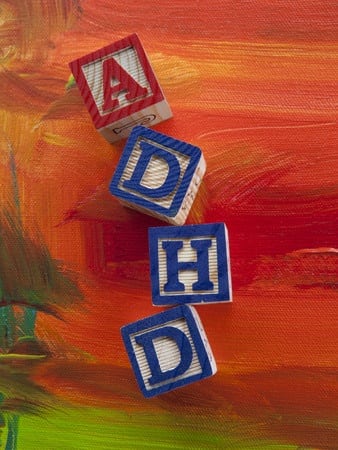 ADHD is a mental disorder that most commonly occurs in children. ADHD symptoms include difficulty concentrating, paying attention, staying organized, and remembering details. While the average age of ADHD diagnosis is seven years old, during their lifetimes, 12.9% of men will be diagnosed, compared to just 4.9% of women. It’s important to keep in mind that while symptoms typically begin to appear in children between the ages of three and six, nearly 4% of American adults over the age of 18 have ADHD.
ADHD is a mental disorder that most commonly occurs in children. ADHD symptoms include difficulty concentrating, paying attention, staying organized, and remembering details. While the average age of ADHD diagnosis is seven years old, during their lifetimes, 12.9% of men will be diagnosed, compared to just 4.9% of women. It’s important to keep in mind that while symptoms typically begin to appear in children between the ages of three and six, nearly 4% of American adults over the age of 18 have ADHD.
Women usually experience ADHD in a different way from men. For instance, women don’t tend to be hyperactive; in fact, 90% of women diagnosed with ADHD are in the inattentive category of ADHD. Women with ADHD often have poor memories and are extremely disorganized. They also tend to manage their undiagnosed ADHD until later in life when they begin their careers, get married, and have children. Women with ADHD do not need to despair, though. There are several things they can do to make living with ADHD more manageable.
- Get Support
Women often feel the pressures of balancing work and home life, and even though traditional gender roles are shifting, women are often the ones who organize the home, the kids, the activities, the grocery list, and more. These things are extremely difficult for women with ADHD, so it is critical that they get support. That may be in the form of a therapist, ADHD coach, family, friends, colleagues, etc., but the most important thing is to be sure that the people in your support system understand ADHD. Having a support system in place full of people who truly understand the disorder and who have realistic expectations is one of the things that helps women with ADHD the most.
- Create Structure and Schedules
With everything women with ADHD have to juggle, it is crucial to create structure and schedules for your family and yourself. When you craft a structured life with schedules, you are thinking about what needs to be accomplished and how. Having a plan decreases the overwhelmed feeling that is so common for women with ADHD and the procrastination that is easy to adopt as a habit. Recording what needs to be done and when reduces stress for women with ADHD because they are less likely to forget an appointment or event or get disorganized. The structure and schedule also keeps everyone on the same page and enhances the support system.
And don’t forget to schedule in some fun, too. Everyone needs a way to blow off steam, so give yourself time to indulge in physical exercise like swimming, jogging, or yoga. You could even take up a new hobby like creative writing or painting that might allow you to express yourself more clearly than traditional communication.
- Adopt Strategies for Social Interactions
Social interactions are especially difficult for women with ADHD, which can affect their careers and relationships. Women with ADHD have difficulty connecting with other people, including focusing on conversations and avoiding interrupting others or even blurting out responses. When talking with other people, women with ADHD should focus on the speaker’s mouth to gain the necessary cues for when to speak and when to remain quiet. Women with ADHD also should consider asking questions to remain engaged in the conversation, and to request that conversations take place in quiet, less distracting places.
- Delegate and Get Help
Similar to creating a strong support system, delegating tasks and getting help can make a huge difference in the lives of women with ADHD. Author and psychotherapist Terry Matlen suggests that women with ADHD get help and delegate better. For example, women with ADHD should hire a cleaning service and tutors to help their children with homework in order to get help with daily tasks. Delegating is a way to get support, have more energy, and feel less anxious and depressed. As Matlen puts it, “I advocate that women with ADHD stop trying to keep up with the Joneses.” Cutting back and taking a slower approach helps women with ADHD feel less overwhelmed.
Women with ADHD can lead successful and happy lives, especially if they make a few changes to their routines. Asking for and getting support and help are two of the best things women with ADHD can do for themselves.
Vee Cecil is a wellness coach, personal trainer, and bootcamp instructor. Vee is passionate about studying and sharing her findings in wellness through her recently-launched blog.
Image credit: 123rf.com
